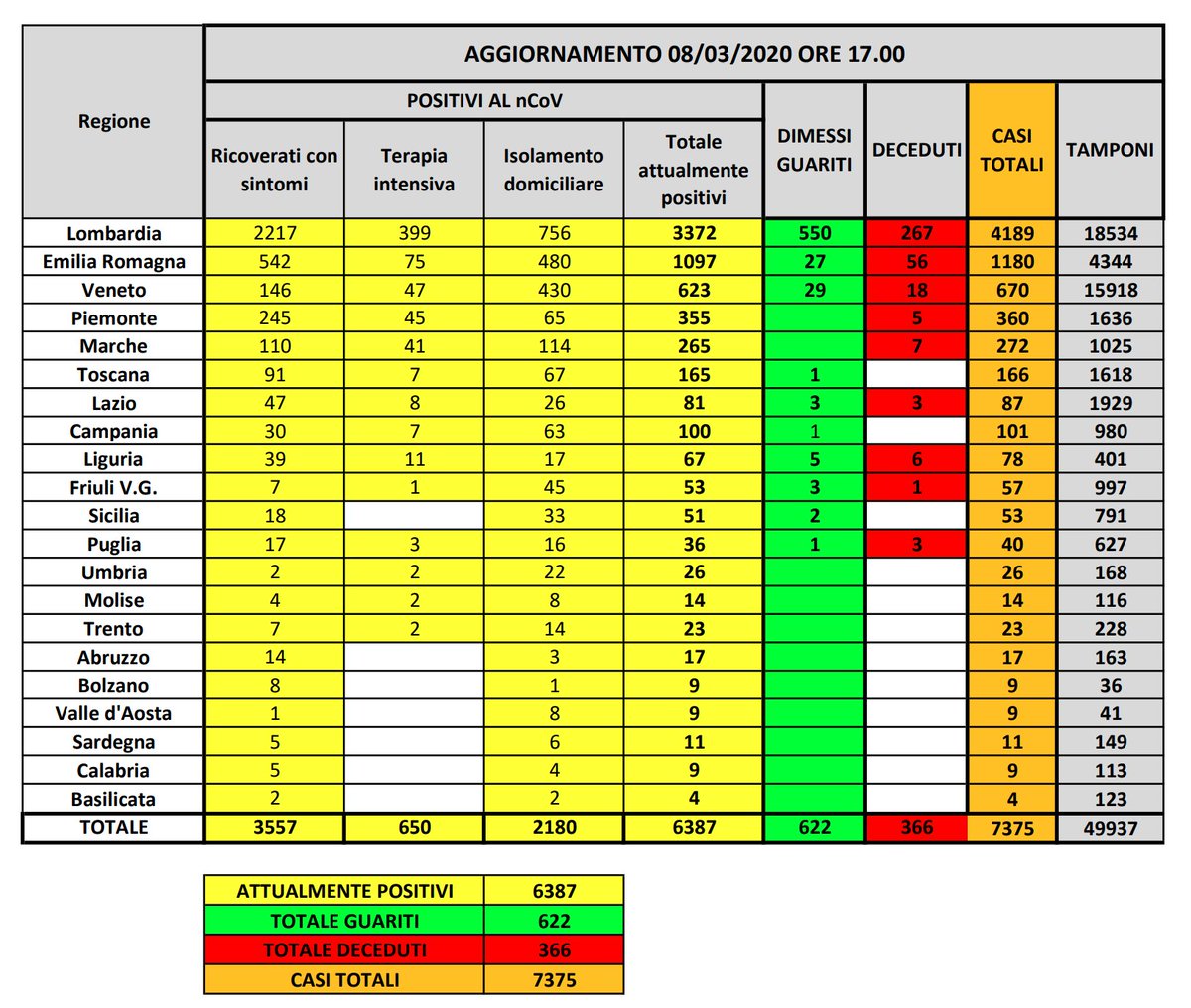MA known COVID-19 cases went 41 -> 92 today.
We're at 100 tests/day, so 50% of tests are positive--indicating MASSIVE under-testing.
So far, effort at both testing + mitigation is worse than Lombardy at the same time.
@MassGovernor @MassDPH must start shutting stuff down NOW.

We're at 100 tests/day, so 50% of tests are positive--indicating MASSIVE under-testing.
So far, effort at both testing + mitigation is worse than Lombardy at the same time.
@MassGovernor @MassDPH must start shutting stuff down NOW.


Well before there were this many cases in Italy, 50k people were locked down (and it was nowhere near adequate). Boston needs to do the same, and more, ASAP. Cancel gatherings, make everyone WFH.
(Or they could end #DontTestDontTell but that would require actual state capacity.)
(Or they could end #DontTestDontTell but that would require actual state capacity.)
(Source on test numbers: boston25news.com/more/blog-late… -- "Roughly 400 people have been tested for COVID-19 in the state... Before, the state was only able to complete about 50 tests a day, but with the automated process, that number can be over 100 a day.")
• • •
Missing some Tweet in this thread? You can try to
force a refresh




